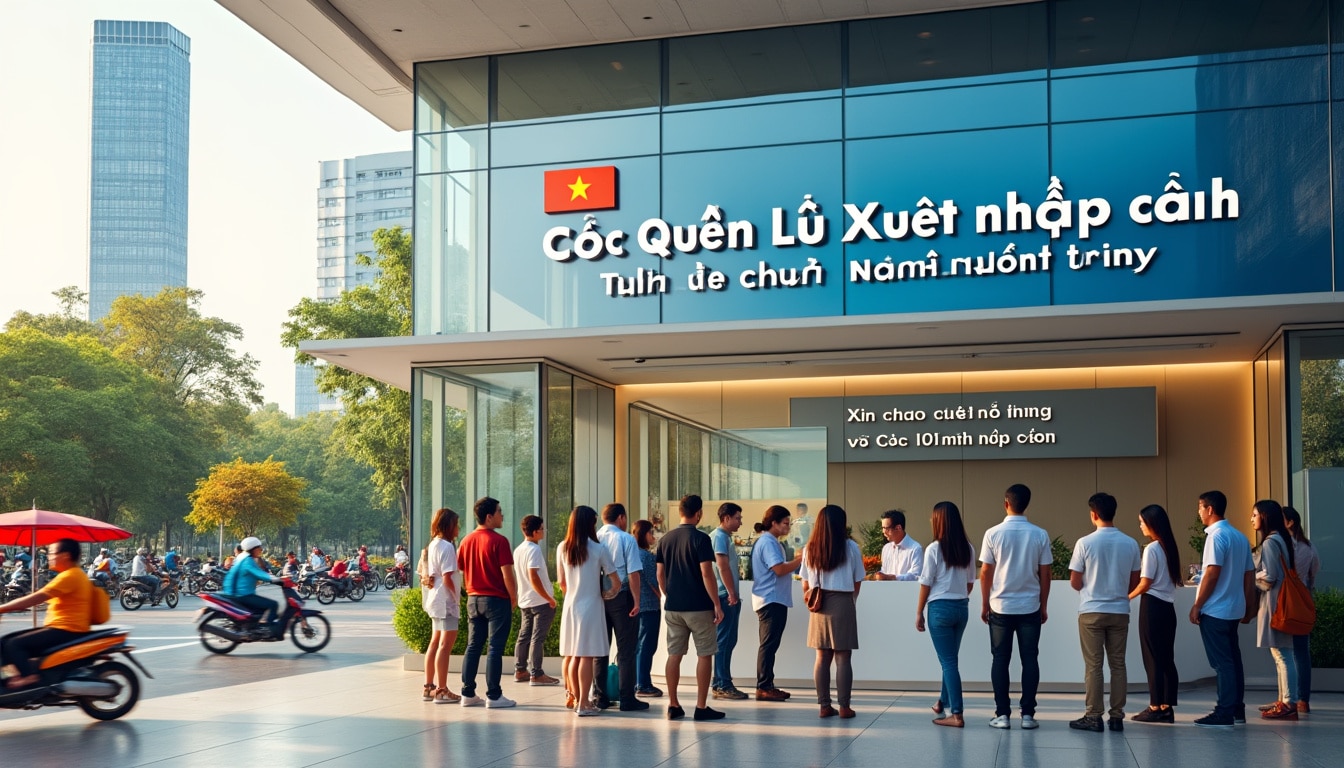Considering a move to the bustling and vibrant Ho Chi Minh City, Vietnam’s economic heart, is an exciting prospect for many. With its rich cultural tapestry, dynamic street life, and blend of the traditional and modern, it’s easy to see why the city is a magnet for expatriates. However, navigating the legal landscape can be a complex endeavor. This article will serve as your guide to legally moving to this fascinating city, providing you practical insights and tips to ensure a smooth transition.
The Intricacies of Vietnamese Visa Requirements
Vietnam’s visa requirements can be quite intricate, especially for long-term stays. For starters, understanding the different types of visas and their purposes is crucial. Vietnam offers various entry visas, and deciphering the right one for your scenario forms an essential first step in your relocation journey.
Common visa types include:
- ĐT (Investor Visa): Issued to foreign investors, with a validity of 1 to 10 years depending on investment capital.
- LĐ (Work Visa): Valid for up to 2 years, issued to foreign workers.
- DN (Business Visa): For business purposes, valid for up to 1 year.
- TT (Dependent Visa): For spouses and children under 18 of holders of ĐT, LĐ, or DN visas, lasting up to 1 year.
- DL (Tourist Visa): Designed for tourists exploring the cultural immersion Vietnam offers.
Applying for the correct visa is vital to ensure you are compliant with Vietnamese law. The application process requires meticulous paperwork and often takes several weeks, so it’s advisable to initiate the process well in advance. Consult immigration consultants or a visa services provider to assist you with processing your application, ensuring you meet all requirements.
| Visa Type | Purpose | Validity |
|---|---|---|
| ĐT (Investor Visa) | Investment in Vietnamese business | 1 to 10 years |
| LĐ (Work Visa) | Employment by a Vietnamese company | Up to 2 years |
| DN (Business Visa) | Partnership with local enterprises | Up to 1 year |
| TT (Dependent Visa) | Family joining primary visa holders | Up to 1 year |
| DL (Tourist Visa) | Tourism | Varies by period |
Moreover, be wary of overstaying your visa, as this could lead to severe consequences, including fines and deportation. In case of extended plans, ensure you apply for a renewal promptly. Keeping abreast of Vietnam’s changing immigration policies in 2025 and beyond by consulting with reliable relocation agencies could save you both time and stress.
Navigating Employment and Work Permit Solutions
One of the prevailing challenges for expats in Ho Chi Minh is obtaining a work permit, a legal document that allows foreigners to be employed or run a business in Vietnam. The country enforces strict policies regarding employment to protect its local labor force, making Work Permit Solutions an area that demands your due diligence.
The process begins with securing a job offer from a Vietnamese employer who will sponsor your work permit. This employer must provide certain documents to the local labor department, such as their business license, a contract, and justification of your employment.
- Find an employer willing to hire and sponsor you.
- Ensure they provide the necessary paperwork and assistance.
- Gather personal documents: police clearance check, medical records, professional qualifications.
- Submit all documents as a bundle to the Vietnamese Department of Labor.
Without a work permit, expats caught working could face deportation, and employers can suffer hefty fines, potentially leading to a temporary business closure. Remember, you must also renew your work permit every few years, reinforcing the importance of maintaining a good relationship with your employer and staying informed about legislative changes.

For professionals planning to start their own business, the steps can be even more complex and require a strategic financial plan. Although no specific capital amount is mandated by law, it’s prudent to have at least $25,000 as initial capital, ensuring you meet all regulatory requirements.
Consider engaging business legal consultants skilled in Vietnamese corporate law to streamline your business initiation and secure your work permit seamlessly. With Ho Chi Minh City’s economic climate bustling with opportunities, there’s never been a better time to be part of this thrilling journey.
Understanding Housing Assistance in Ho Chi Minh
Acquiring suitable accommodation is an essential yet challenging part of relocating to Ho Chi Minh City. The city’s real estate market is both vibrant and competitive, offering a myriad of options from luxurious apartments to modest dwellings amidst the bustling districts.
While Ho Chi Minh offers a plethora of housing options:
- District 1: The heart of Saigon, bustling with tourists and business activity, but marked by higher rent prices.
- District 2: Known for its expat community, with beautiful residential enclaves ideal for families and those seeking a quieter lifestyle.
- Binh Thanh District: Up-and-coming with a growing startup scene, perfect for dynamic young professionals.
To find suitable housing within your budget, relocation agencies and expat services offer handy solutions, providing comprehensive housing assistance including finding agents, negotiating leases, and assisting with necessary legal paperwork.
You should be aware that as a foreigner, buying property in Vietnam comes with its regulations. Under Vietnamese law, foreigners can buy apartments and houses but not the land on which they are built. Land ownership is a complex domain reserved for Vietnamese nationals, but expats can secure land use rights for a limited period. These arrangements are renewable, allowing for indefinite occupation provided that the lease terms are respected.
Staying informed through credible sources ensures that your living space becomes not just a house, but a true home filled with rich experiences of urban Vietnamese life!
Embracing Cultural Exchange Programs in Vietnam
The allure of Ho Chi Minh City is not just based on its economic prospects or attractive lifestyle, but also its rich culture and welcoming community. As a newcomer, one of the most rewarding experiences is participating in cultural exchange programs. These programs offer a unique insight into Vietnamese culture, allowing expats to integrate smoothly into local life.
The city offers various programs:
- Language schools hosting cultural seminars to immerse learners in Vietnamese history, arts, and traditions.
- Community events where expats and locals collaborate on cultural projects, encouraging cross-cultural communication and understanding.
- Local cuisine classes offering hands-on experiences that introduce you to authentic Vietnamese cooking techniques and flavors.
Interaction with locals gradually enhances language skills and cultural literacy. For those investing in language schools, it’s not just about learning Vietnamese; it’s a gateway to new friendships and understanding the subtleties of the Vietnamese way of life.
| Program Type | Focus | Duration |
|---|---|---|
| Language Courses | Vietnamese language and culture | 6 months to 1 year |
| Culinary Workshops | Local cooking skills and dishes | 1 day to 1 week |
| Community Projects | Cultural and educational collaboration | Varying from project to project |
Indeed, being part of these exchange programs can significantly enrich your experience in Vietnam, helping you to build a fulfilling life amidst the vibrant aura of Ho Chi Minh City. Pairing these experiences with the dynamic urban lifestyle draws a perfect picture for an exhilarating adventure abroad.
Common Legal Considerations and Regulatory Compliance
When relocating to Ho Chi Minh City, understanding local legalities is a priority. Vietnam’s legal framework might differ from what expatriates are accustomed to, which is why it’s crucial to be well-informed about common legal considerations. Notably, some regulatory aspects you need to be alert to include:
The government has stringent zero-tolerance policies against drug offenses, as defined by Decree 60/2020 ND-CP. A breach could result in severe consequences, including imprisonment or worse.
Though prostitution exists in some areas, sex work remains illegal under Vietnamese law. Falling on the wrong side of the law could entail fines and serious legal ramifications, including deportation.
- Drug offenses carry severe penalties.
- Work without a permit is illegal and punishable.
- Prostitution is prohibited by law.
Moreover, all properties built on Vietnamese soil belong to the state. Even if you own a property, you technically only have rights to the building, not the land it stands on.
Partnering with experienced legal consultants and leveraging expat services can ensure that your Vietnamese adventure is legally compliant and devoid of unnecessary stress. Remember, understanding local laws and subscribing to best practices is the best way to achieve a harmonious and successful transition to life in Ho Chi Minh City.
Check detailed information on Ho Chi Minh legal rules and regulations.
Frequently Asked Questions
Q: Can I work in Vietnam without a work permit?
A: No, working without a valid work permit in Vietnam is illegal. You must be sponsored by a local employer to obtain one.
Q: How long does it typically take to process a visa?
A: Depending on the type, it could take anywhere from a few weeks to a couple of months. Starting the application process well in advance is advisable.
Q: Are there any legal number requirements for starting a business in Vietnam as an expat?
A: While there’s no set capital amount for starting a business, having approximately $25,000 is recommended to cover setup and initial operational costs.
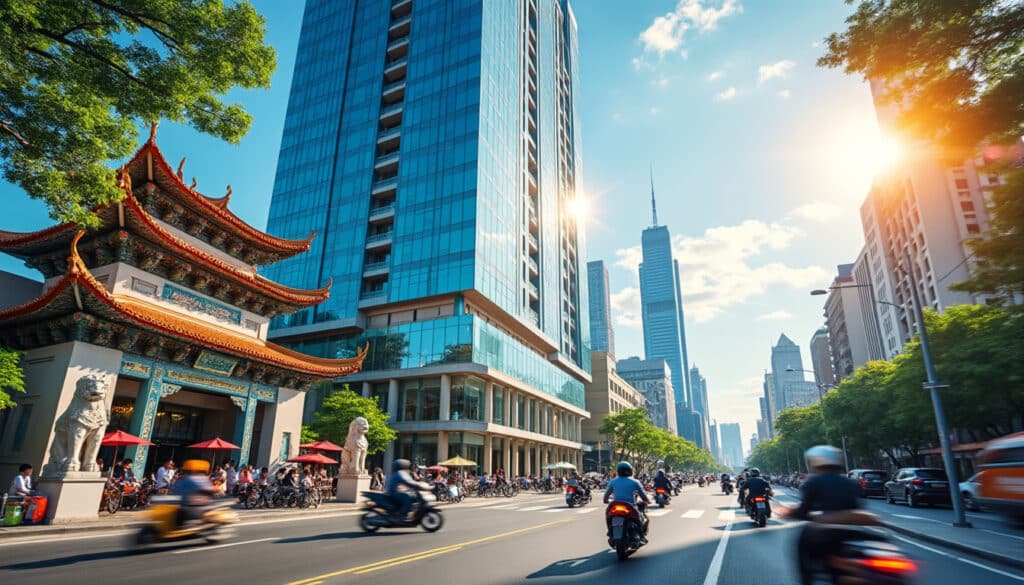
Legal Information and Rules in Ho Chi Minh
As Ho Chi Minh City continues to thrive, becoming a bustling metropolis in Vietnam, understanding its legal landscape is essential for both locals and newcomers. From the nuances of national sovereignty under Ho Chi Minh’s ideology to the intricacies of…

Calling and communication rules in Ho Chi Minh
The vibrant city of Ho Chi Minh, with its bustling streets and rich cultural heritage, offers a distinctive landscape for communication, both verbal and non-verbal. As Vietnam’s economic hub, this city blends traditional customs with modern business practices, requiring both…
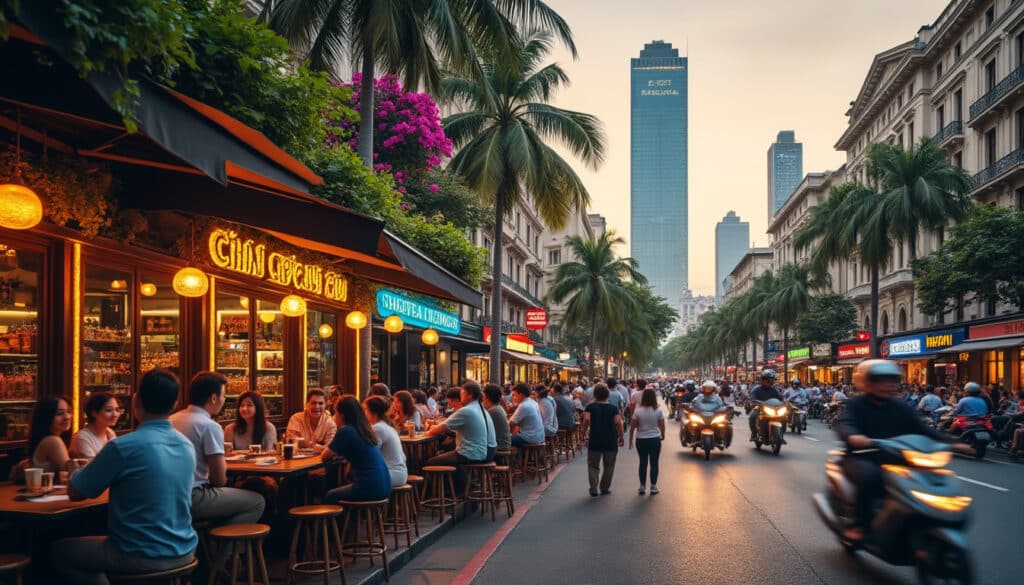
Criminal status and entry to Ho Chi Minh
Navigating the labyrinth of entry requirements to Ho Chi Minh City can often seem daunting, especially when criminal records and legal checks are involved. This comprehensive guide sheds light on how a criminal status might affect entry into Vietnam’s bustling…
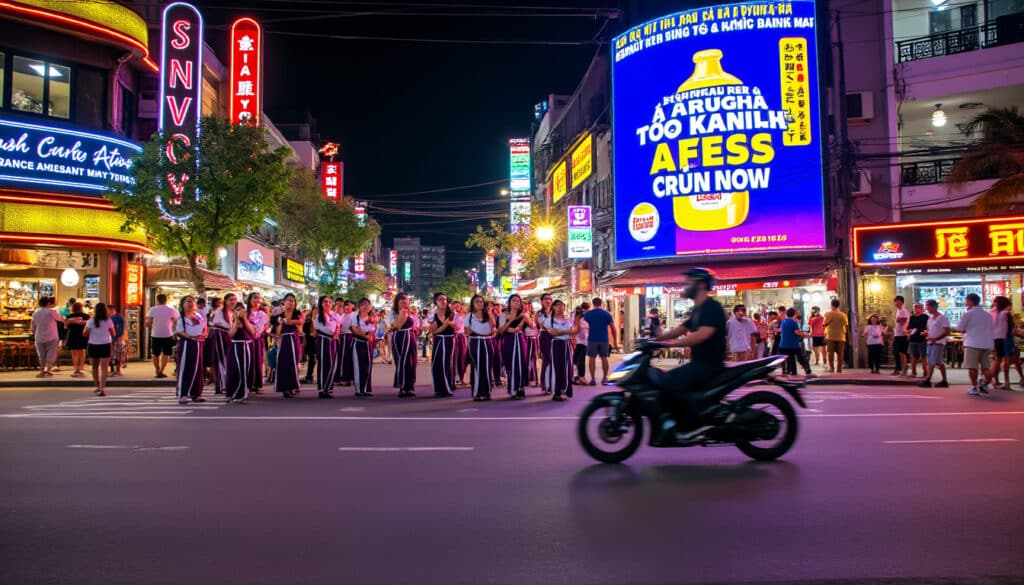
Drinking and age restrictions in Ho Chi Minh
When traversing the vibrant streets of Ho Chi Minh City, often dubbed the “Pearl of the Far East,” one of the striking features that capture the essence of its culture is the city’s dynamic nightlife. Yet, beneath the colorful lights…
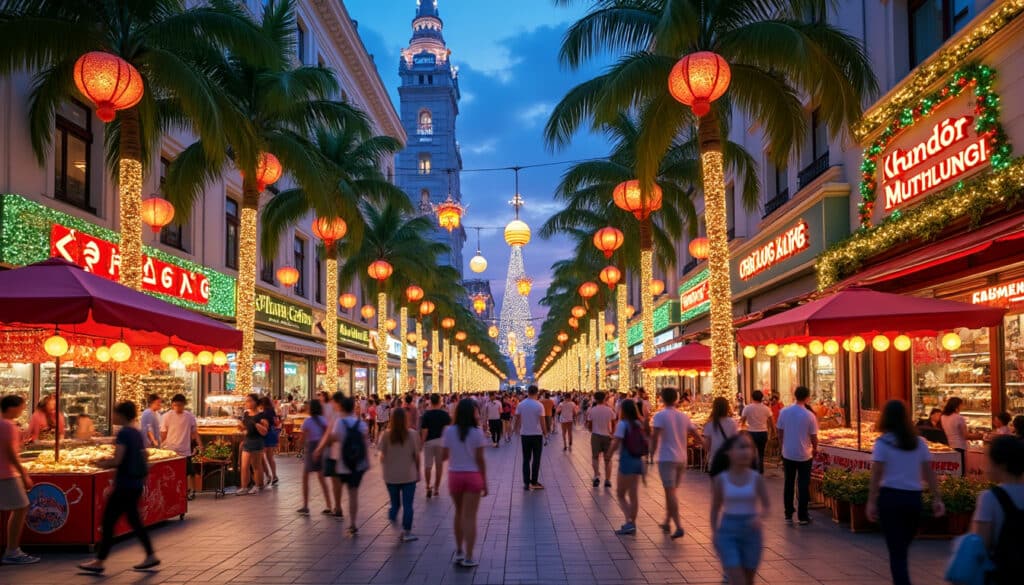
Holiday openings in Ho Chi Minh
As Ho Chi Minh City, affectionately known as Saigon, continues to grow as a bustling urban center, its array of holiday attractions and events expand alongside it. Whether you are a resident planning to make the most of your days…
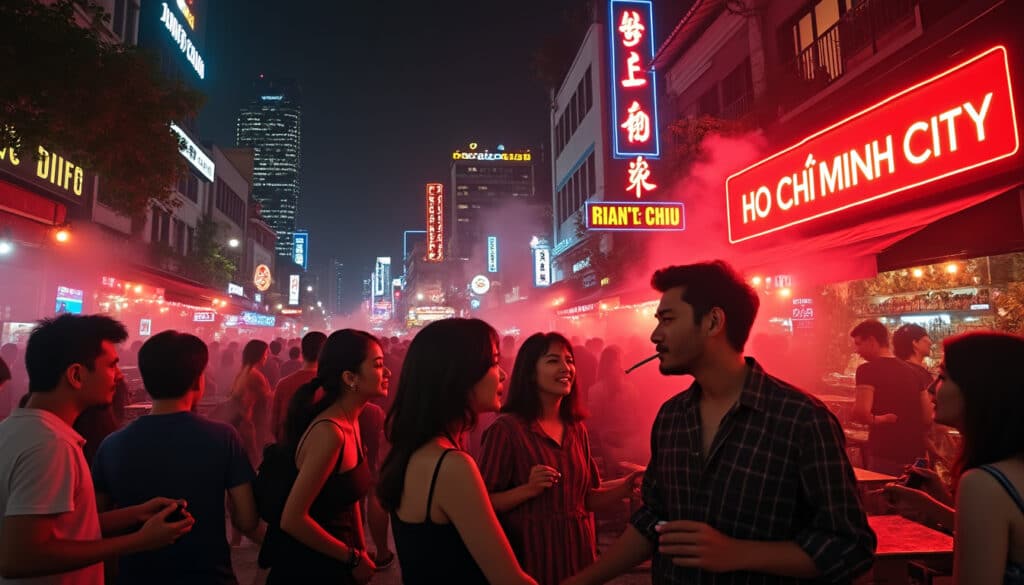
Smoking, drugs, and red light laws in Ho Chi Minh
Ho Chi Minh City, formerly known as Saigon, offers a vibrant tapestry of cultural experiences and a bustling nightlife that attracts millions worldwide. Amidst the allure of its street food and historical landmarks, questions often arise about the legal landscape…

Social and discrimination issues in Ho Chi Minh
Ho Chi Minh City, a vibrant metropolis and the economic heart of Vietnam, is a melting pot of cultures, ideas, and aspirations. Yet, beneath its bustling streets and modern skyline lie complex layers of social dynamics and discrimination that reflect…

